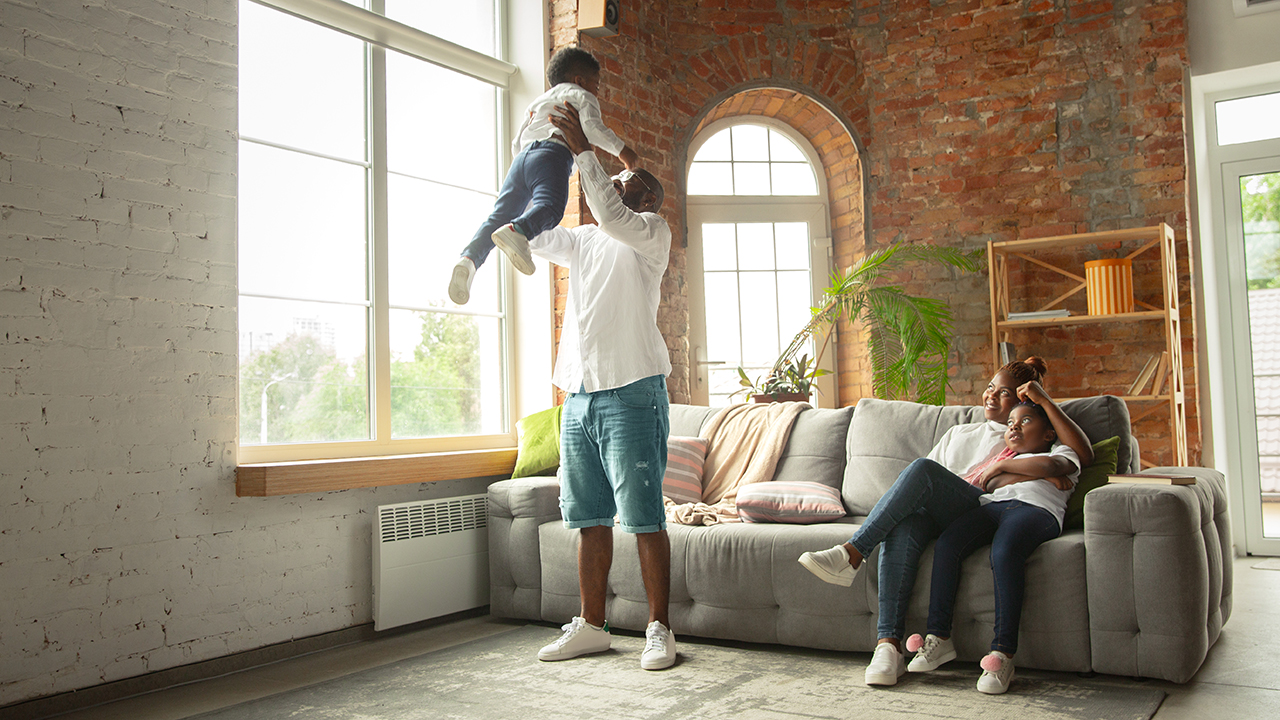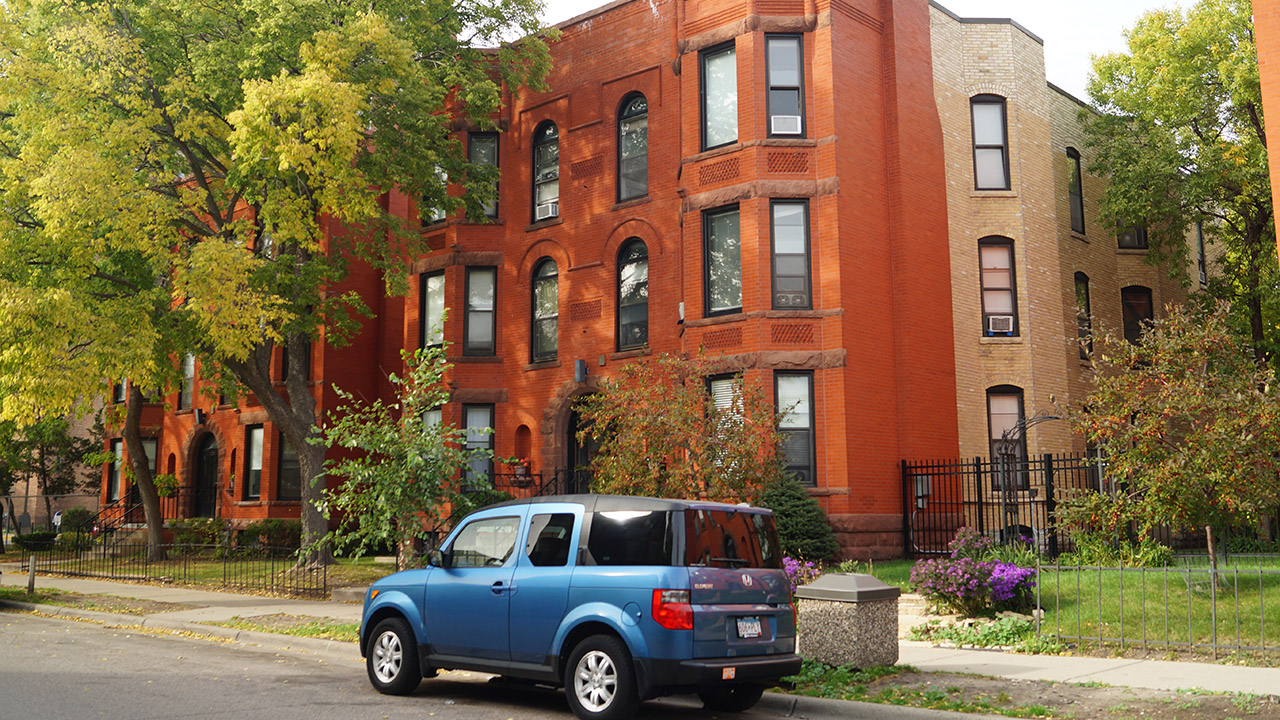
Fresh Energy is working to cut carbon pollution from all sectors of our economy, and one way we advance this goal is by supporting robust and accessible clean energy policies in housing programs, particularly multifamily housing. For many years, these efforts took place within the Minnesota Multifamily Affordable Housing Energy Network (MMAHEN), a prominent statewide group that sought to increase energy efficiency and conservation in multifamily buildings in Minnesota. Now, we are looking forward to continuing MMAHEN’s endeavors as it evolves into a new chapter of advocacy work: Minnesota Energy Efficiency for All (MN EEFA).
MMAHEN has long convened a diverse group of organizations in Minnesota’s affordable housing sector, utility sector, and beyond to discuss opportunities for improving energy efficiency programs, but in recent years the group’s steering committee noticed a need to focus on and push for stronger policies that centered principles of equity. This led to MMAHEN condensing into a smaller group of advocates who wanted to ensure equity is always a part of the conversation at the intersection of energy and housing.
While MN EEFA represents a new chapter in the housing space, it will continue to carry MMAHEN’s expertise as it deepens its lens to addressing issues of equity within energy and housing.
The Buildings team at Fresh Energy collaborates closely with MN EEFA and its diverse array of partners, thus furthering its policy goals in the Buildings sector to build cleaner, more efficient buildings that are affordable over the long term. Read more about the work of our Buildings department here.
History of MMAHEN and why it’s evolving into MN EEFA
MMAHEN was created to increase energy efficiency and conservation measures in Minnesota’s affordable multifamily buildings (often defined as five units or more) by improving and expanding the use and access of available resources, such as utility programs. Energy efficiency encompasses a variety of actions meant to reduce overall energy use, including weatherization and replacing old appliances with newer ones. Reducing overall energy use also means lower energy bills, which makes energy efficiency an important tool for advancing equity in the clean energy sector. Under-resourced families in particular have the most to gain from deeper investments in energy efficiency in affordable housing, since those families often spend up to five times more of their income on energy compared to the average household.
Since its first meeting in July 2014, MMAHEN grew to 63 members across 39 organizations working to strategically advance energy efficiency programs in multifamily housing.

MMAHEN has historically been a network for information sharing between the energy and affordable housing sectors, which has a diverse variety of involved organizations. Although these conversations were valuable and the group advanced important work, the core members leading the network recognized a need to make deeper, meaningful change that centered not just on sustainability, but principles of racial equity, regeneration, and investment. This required the reinventing of the network’s priorities and policies to reflect that broader change. As such, in 2021 MMAHEN decided to evolve into MN EEFA and updated its organizing framework accordingly, including establishing Principles of Partnership that will facilitate a more collaborative group that works to center racial equity.
MN EEFA is one of 12 state chapters of the national EEFA coalition, which builds power to advance environmental and energy justice through healthy, energy-efficient, and affordable housing. For several years, Fresh Energy has worked alongside EEFA partners from other states to encourage deeper investments in energy efficiency programs serving under-resourced customers, renters, and multifamily housing residents.
MN EEFA will continue to be a collection of organizations in the energy and housing spaces, but it will now have a deeper focus on advocacy and intersectionality, e.g. shifting the narrative to build on principles of regeneration and equitable housing, which acknowledge that everyone should be able to live in not just an affordable home, but also a home that is energy efficient, resilient, affordable, and safe.
MN EEFA will also include other types of housing in its work, including but not limited to one- to four-unit buildings, cooperatives, and manufactured housing, although multifamily will still be a primary focus. MN EEFA also seeks to expand its reach outside of the Twin Cities region and encourage participation from all communities throughout the state (i.e., urban, suburban, and rural). By broadening its work and building more relationships outside of the metro region, MN EEFA strives to build momentum with every community across the state and co-create more equitable housing and energy programs.
Who is MN EEFA now?
MN EEFA is currently made up of the following organizations: CAPI, Community Action Partnership of Ramsey & Washington Counties (CAP RW), Community Stabilization Project (CSP), Fresh Energy, Midwest Energy Efficiency Alliance (MEEA), Minnesota Housing Partnership (MHP), National Housing Trust (NHT), Natural Resources Defense Council (NRDC), and William Weber Consulting LLC. We are also supported on specific initiatives by Green and Healthy Homes Initiative (GHHI), Ecolibrium 3 (Eco3), and Citizens Utility Board of Minnesota (CUB MN).
MN EEFA’s members provide a wide range of perspectives within energy and housing, from program implementation to rent stabilization to immigration resources, and the breadth of expertise of the coalition is one of its major strengths. After all, housing must satisfy many physiological and psychological needs for people, including shelter, electricity, heating and cooling, and a sense of safety and security. The different organizations in MN EEFA all come together to address different energy and housing problems.

Old and new priorities for MN EEFA
Members of MN EEFA will continue to engage in programs that it previously did within MMAHEN, such as submitting formal comments in response to utility ECO (formerly Conservation Improvement Program) Triennial Plans, which urge utilities to invest more deeply in energy efficiency programs. The ECO Triennial Plans have resulted in billions of dollars of net benefits to Minnesotans in the form of lower utility costs, avoided environmental damage, customer bill savings, and new economic output. The coalition also engages in Midwest Building Decarbonization Coalition working groups, which provide comments in Minnesota Housing’s Qualified Allocation Plan process, submits comments to Requests for Information (RFIs) for programs to obtain federal funding from the Infrastructure Investment and Jobs Act for weatherization, and engages with the Minnesota Legislature on electrification and energy efficiency initiatives and policy.
MN EEFA looks forward to engaging in the housing/energy space in new ways, too, including creating virtual workshops that serve as a forum for community members, advocates, utilities, agency staff, and others to better engage with each other and co-create equitable strategies to improve ECO programs. MN EEFA also looks to be more deeply involved with Minnesota Housing programming, including advocating for a more ambitious strategic plan that aligns with Minnesota’s Climate Action Framework. What makes this coalition unique is that it works to promote energy and housing as human rights and identify opportunities for valued, regenerative collaboration and relationships that impact the livability and quality of life for people through holding systems accountable.
Get involved
Interested in learning more about the coalition? Contact Fresh Energy’s senior policy associate Mari Ojeda at ojeda@fresh-energy.org.
